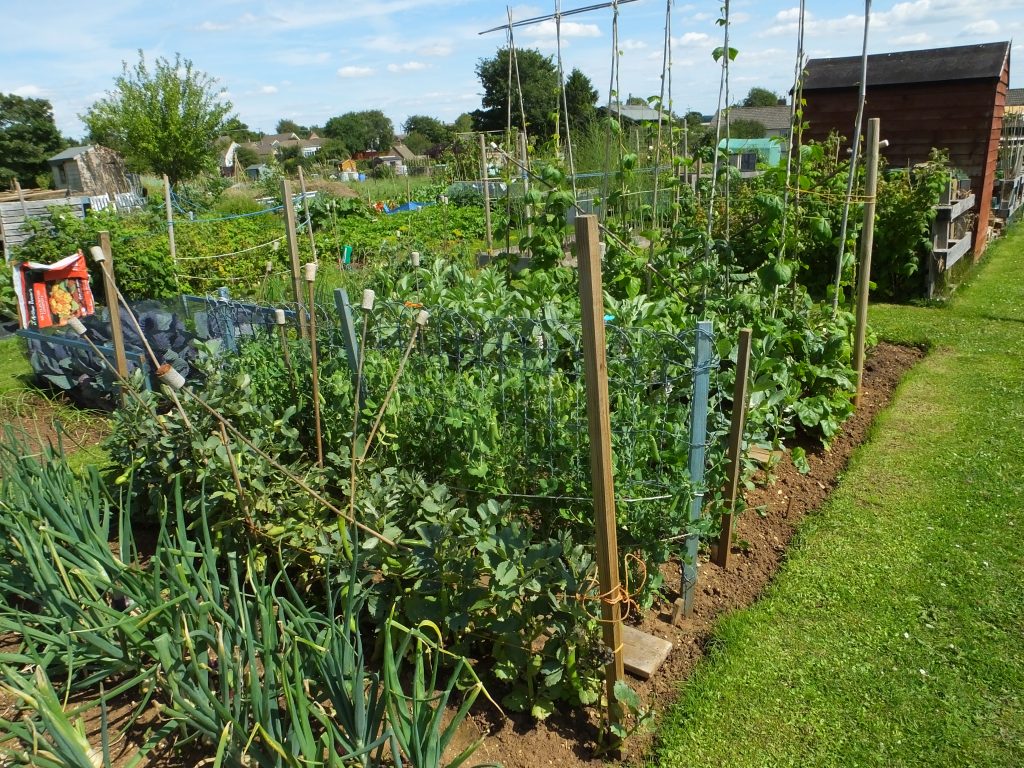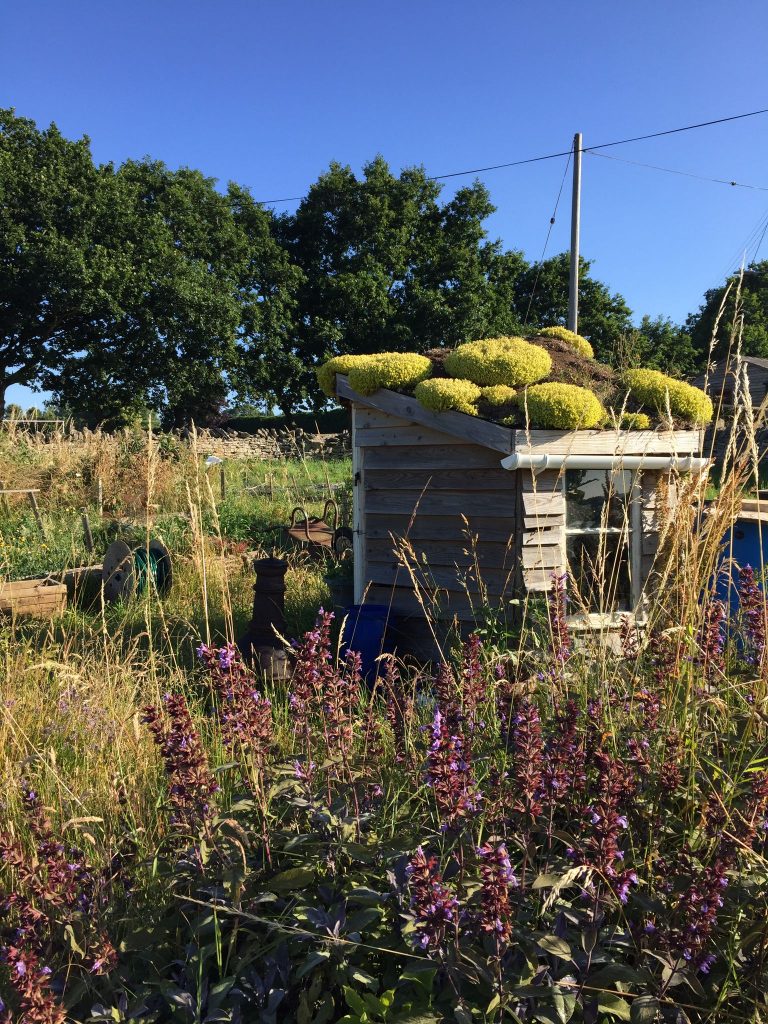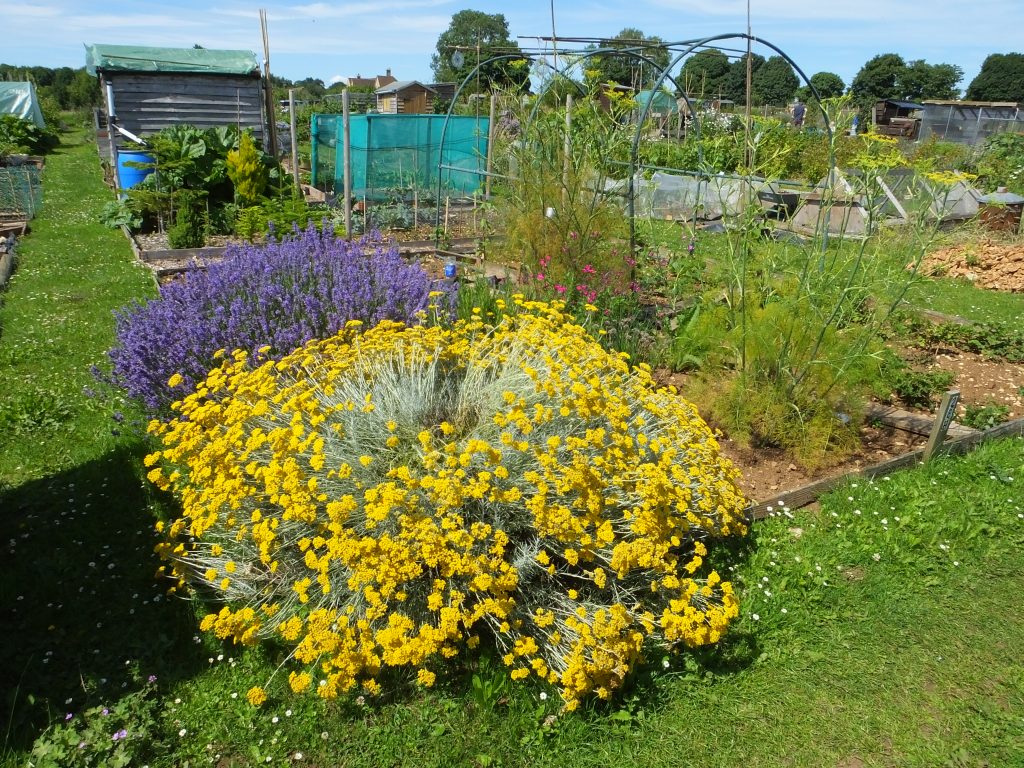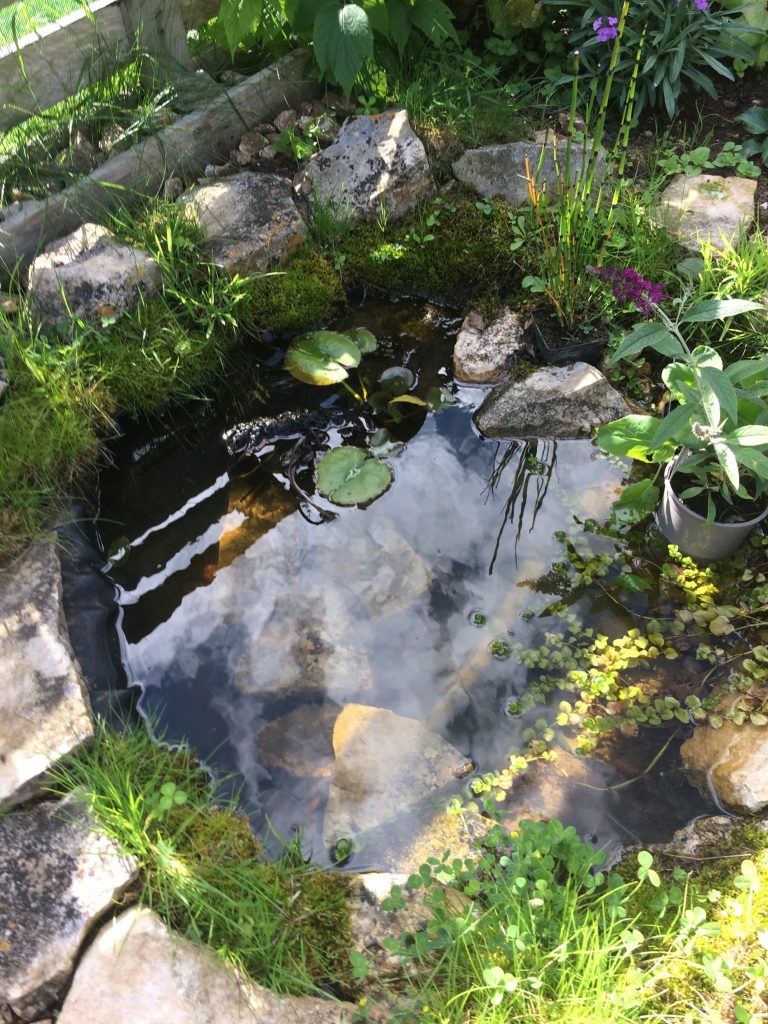


Your allotment is mainly for growing fruit and vegetables, and maybe keeping some chickens; but allotments are also really important for biodiversity. There are lots of things you can do on your allotment to provide food and shelter for wildlife which, as well as supporting biodiversity, can be beneficial to your crops. Here are some ideas:
Avoid using pesticides and herbicides. Most pesticides are non-specific: as well as killing the intended pest they also kill their predators leaving your fruit and veg vulnerable to the next wave of pests that come along. Physical removal, barriers and companion planting are some of the ways you can combat pests such as aphids, slugs and sawfly. Control weeds by hoeing and hand weeding rather than using weed killer.
Don’t be too tidy! This doesn’t mean you have to have an unkempt allotment but small piles of leaves or twiggy debris and areas of what many consider to be weeds can provide cover and food for insects and small mammals. Stones piles are good for toads and slow worms – and they love eating slugs!
Encourage beneficial wildlife. Wild flowers and long grass are great for insects, small mammals and some butterflies. As well as wild areas you could grow nectar rich flowers for bees, butterflies and other insects. The hollow stems of some perennial plants are great for overwintering insects. You can make or buy bee boxes, bug hotels and hedgehog homes.
Ponds. If you can have a pond on your allotment, however small, it will encourage amphibians and birds to visit.

Our local allotments. The three sites in our Parish were created 150 years ago for ‘the working poor’ of Chalford. Today they are as popular as ever, but the current generation of allotment holders is very much aware of the need to garden with biodiversity in mind.
If you would like to talk to one of the many plot holders who successfully garden organically, or have set aside parts of their allotment for a pond, a mini wild life reserve or an insect haven, let us know and we can put you in touch. Contact us at info@chalcan.org.uk.To find out more have a look on these websites:
To find out more have a look on these web-sites
- National Allotment Society advice on Wildlife
- Natural England: Wildlife on Allotments Guidance
- RSPB: Encourage Wildlife to Your Garden
